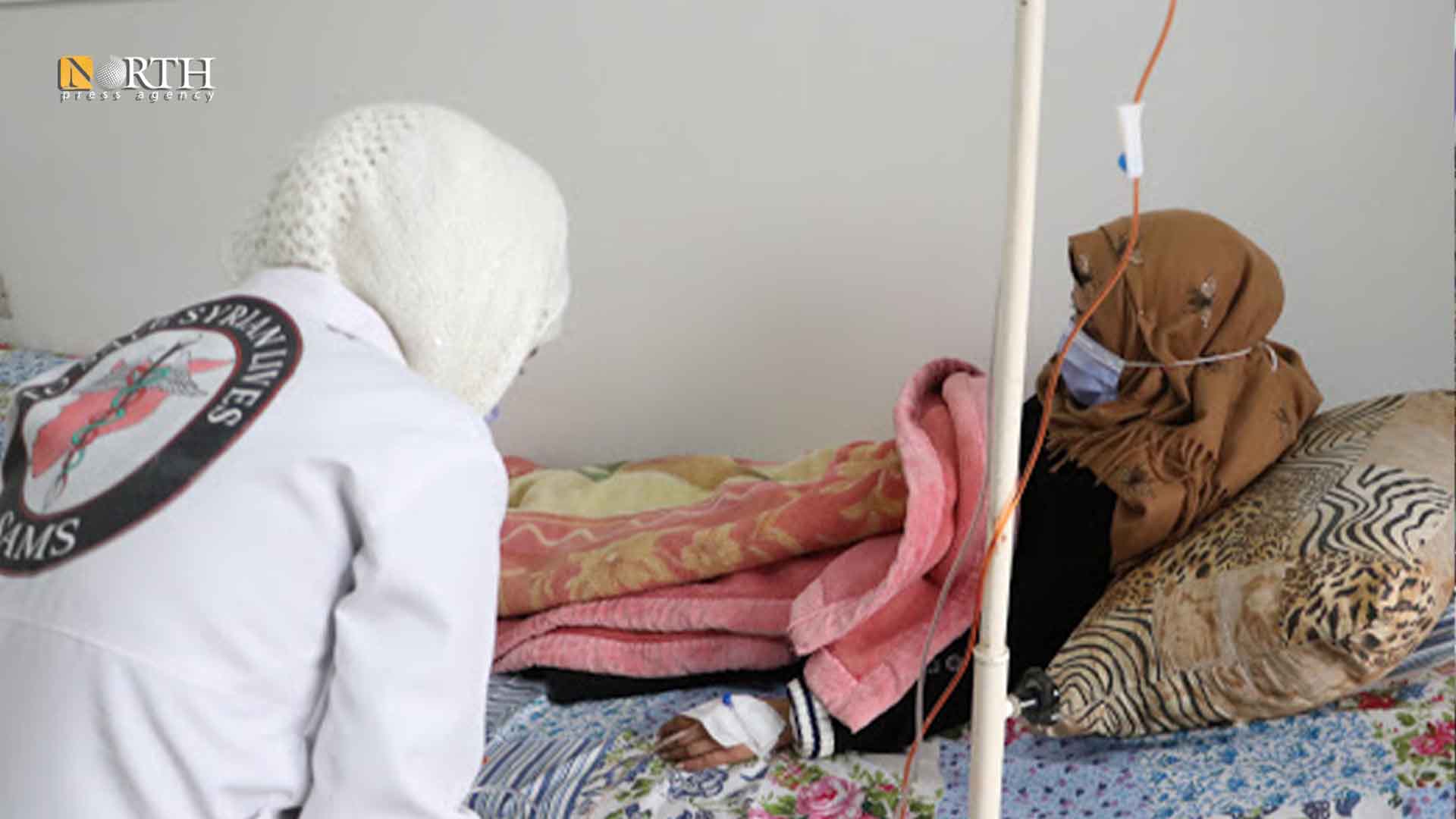IDLIB, Syria (North Press) – Breast cancer patients in Idlib and its countryside, northwestern Syria, suffer from the difficulty of securing free treatment, forcing many of them to endure the hardships of traveling to Turkey and the dangers of crossing the border in order to obtain treatment.
There are two hospitals that own offer chemotherapy in Idlib governorate; Zilal Specialist Hospital in the border area and the Mutlaq Hospital in Idlib city.
However, treatment in them is limited to patients from well-off families, as the cost of one session is about $70, according to patients in the region.
Surrendered to inevitable fate
Rim Hussein, a breast cancer patient from Idlib, said that in light of the lack of treatment in her area, she has completely surrendered to her “inevitable fate.”
Hussein needs the expensive chemotherapy sessions, amid her miserable living condition since her displacement from Ma’arat al-Nu`man city to the border camps, which forces her to endure the pain and suffering of the disease.
Hussein added that she went to the Breast Cancer Center in Idlib Central Hospital, which is the only public one in the region, but she did not find a way to treat her due to her incurable condition, as the center’s work is limited to early detection of the disease and treatment of some cases.
Other patients who are unable to obtain treatment at the center are often forced to endure the hardships of traveling to Turkey for treatment.
Hussein notes that the frequent closure of the crossings and the complications of the measures imposed by the Turkey are the most obstacles that cancer patients face in the northwestern regions of Syria.
Obstacles and difficulties
Turkey imposes restrictions on the entry of patients to its lands, as the number of cases admitted daily has been reduced from ten to only five cases of various chronic diseases, burns and urgent cases.
It seems that women suffer more than other cancer patients because of the need to have a companion with them while crossing the border and during their stay in Turkey.
Kholoud Hamido, a breast cancer patient receiving treatment at a hospital in Turkey, said that she is grateful she is receiving the necessary treatment, but she is aware of the severity and difficulty of the disease, as the treatment period is often harder than the disease itself.
However, she pointed out that the Turkish authorities prevented the entry of caretakers. “I now live alone, face difficulties in securing a livelihood and home rent, and I work in a grocery store to support myself and to secure my living expenses and treatment,” she explained.
After the recent military campaign on Idlib, all civilian and commercial crossings with Syrian government-held areas were closed, and patients in Idlib were no longer able to complete their treatment in the capital Damascus or other government-held areas.
Oncologist Mustafa Daher said that the treatment of breast cancer goes through three treatment stages, starting with surgical and hormonal treatment, then chemotherapy, which is not available in the areas held by the opposition groups.
The doctor pointed out that the number of women with breast cancer who entered Turkish territory during the past two years has reached more than 300, while the number of patients awaiting approval to cross is far more than that.
“Most of the early detection cases are treated in the specialized center, while late and difficult cases are referred to Turkish hospitals,” he added.

